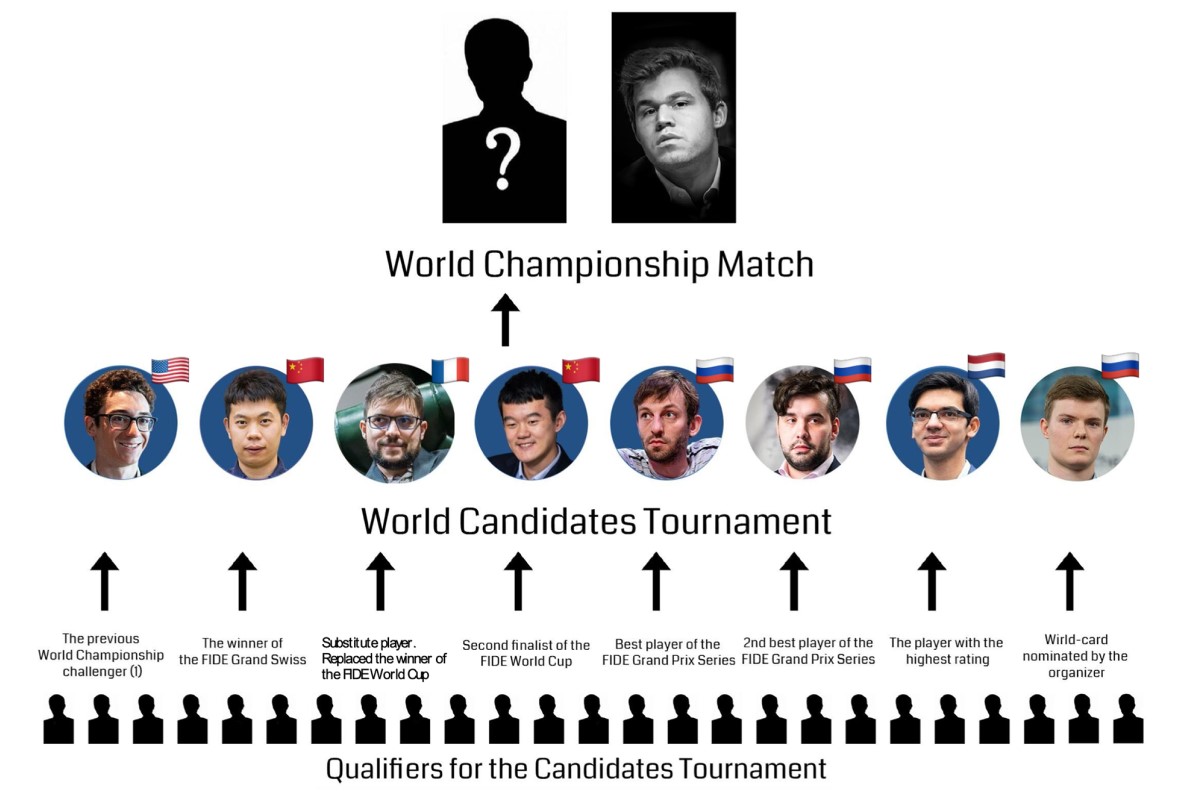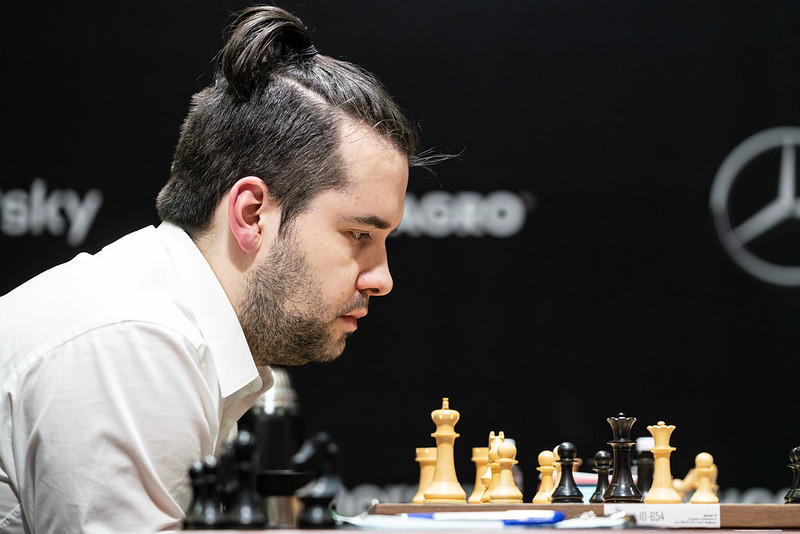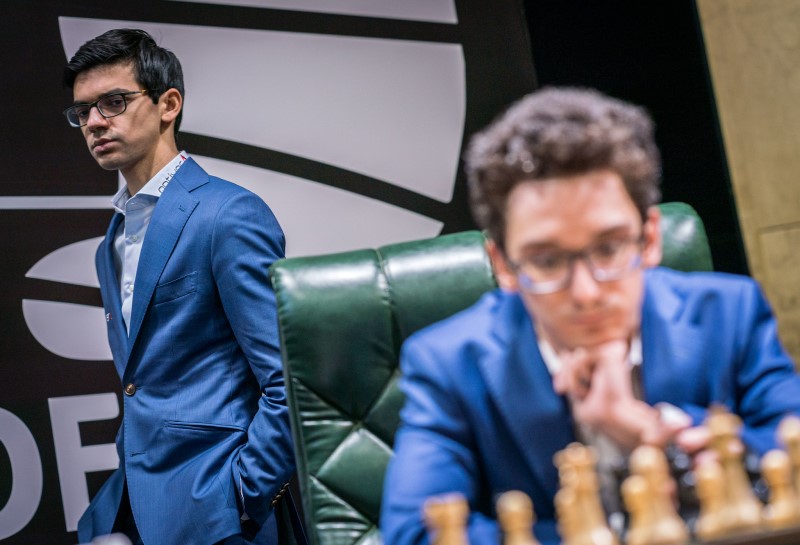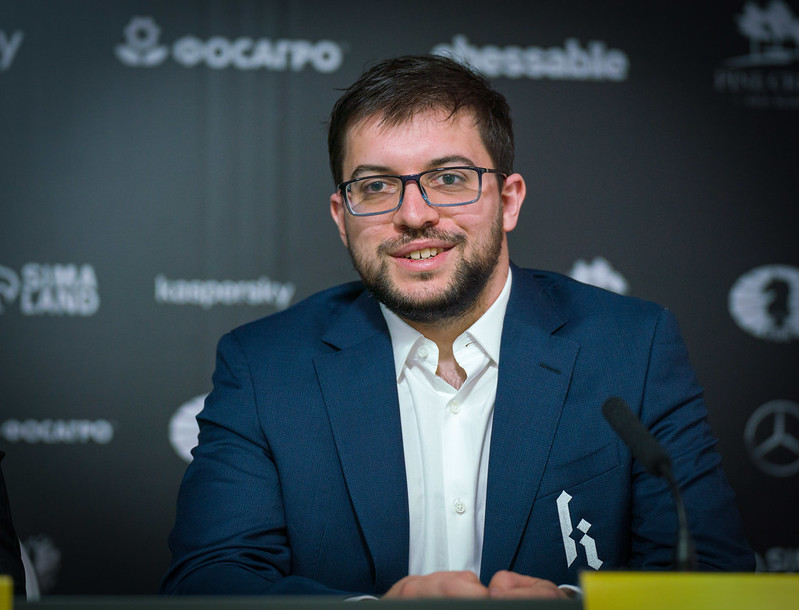


[Note that Jon Speelman also looks at the content of the article in video format, here embedded at the end of the article.]
With the Candidates Tournament resuming the day after this comes out, all eyes are turning to Yekaterinburg. So I thought, perhaps somewhat foolishly, that I’d add my voice to the hubbub of predictions, thus preparing to get egg all over my face or, as you might say, becoming “Ovi-ready”.
More than a year after the first half, this is almost a completely separate tournament, which feels like a race with significant handicaps. The standings have been reprised in many places elsewhere, so I’ll just run down the list starting with the two leaders, Ian Nepomniachtchi and Maxime Vachier-Lagrave.
Nepo has had quite a good year online and also won the Russian Championship over the board in Moscow in December. His last outing at the Magnus Carlsen Invitational was impressive, especially in the way that he coped with Carlsen in the semifinal, fighting for his life when necessary but being prepared to change gear and go for the win when Carlsen over-pressed. This was reminiscent of Anatoly Karpov in his pomp and bodes well for the Candidates.

Ian Nepomniachtchi | Photo: FIDE
MV-L in contrast has had a less good year. When he did play over the board in Wijk aan Zee he finished near the bottom, perhaps because he was trying to protect his openings. But those openings came under fire at Wijk anyway, and in particular he lost twice within two rounds on the black side of the Poison Pawn — to Nils Grandelius and then Fabiano Caruana. Of course, he’s had plenty of time to repair it and/or prepare escape pod(s) to other openings. But it is a real worry for a player who has been scary in an opening for years when the fear starts to transfer to them.
Of the four a point behind, Caruana surely has the best chance. Although his online results weren’t fantastic, that is only of limited relevance. Admittedly, there is quite a lot of correlation between classical chess and internet rapidplay, but this decreases markedly when you move on to blitz and almost disappears in the video game which chess players call bullet. Incidentally, I wonder whether readers have noticed that the really macho boys have nowadays started to play quite a lot of 30-second chess and that, unsurprisingly, Alireza Firouzja is fantastic at this.
Much more importantly, regarding the Candidates, Caruana was in very decent form over the board in Wijk ann Zee coming third equal. He is terrifying when he gets on a roll and in top form could be almost unstoppable.
Anish Giri arrives on the back of victory in the final of the Carlsen Invitational and, much more important, first equal — though he lost the play-off with Jorden Van Foreest — over the board in Wijk. He has made himself a much more overtly aggressive player over the last year and must have a decent chance of winning, though I think less than Caruana.

In the hunt — Anish Giri and Fabiano Caruana | Photo: Lennart Ootes / FIDE
Of the eight players in Yekaterinburg, Alexander Grischuk plays perhaps the most enigmatic chess with a penchant for winding the opponent up, which chimes with my own style years ago. He’ll certainly win some games in the second half but will probably lose some as well, which I suspect will put him out of contention for first. In contrast, Wang Hao seemed still to be establishing himself a year ago and was rather drawish. If he remains the same, then he won’t score enough wins to challenge for first.
Which leaves the final two a further point behind: Ding Liren and the bottom seed Kirill Alekseenko.
Alekseenko surely has less chance of winning from this position than Leicester City did of winning the Premiership, the year they created their massive shock. Ding though does have some chance if he gets off to a terrific start and has a perfect tournament. His bad form in the first half was certainly partly the result of the quarantine he had to endure in Moscow before travelling to Yekaterinburg, and I presume that more sensible arrangements have been made this time. He’s a fantastic player and his lousy form in internet chess over the last year is hardly relevant when you realize that he was playing long “days” of chess starting at about midnight in his time zone.
Overall, I think that Nepo is favourite to become Carlsen’s next challenger followed by Caruana and MV-L together; Giri; Grischuk; Ding and Wang Hao; and Alekseenko. I’m not a betting man and didn’t initially think in terms of probabilities, but we might as well assign some percentages to them something like 27; 20, 20; 15; 10; 4, 4; and “0” (it’s certainly less than 1/100 that Aleksienko will win). From Monday we’ll find out, and I await oviform rebukes when I turn out to have been totally mistaken.

Maxime Vachier-Lagrave in good spirits during Sunday’s press conference | Photo: Lennart Ootes / FIDE
To conclude, three possibly relevant over-the-board games from the last year:
Select an entry from the list to switch between games